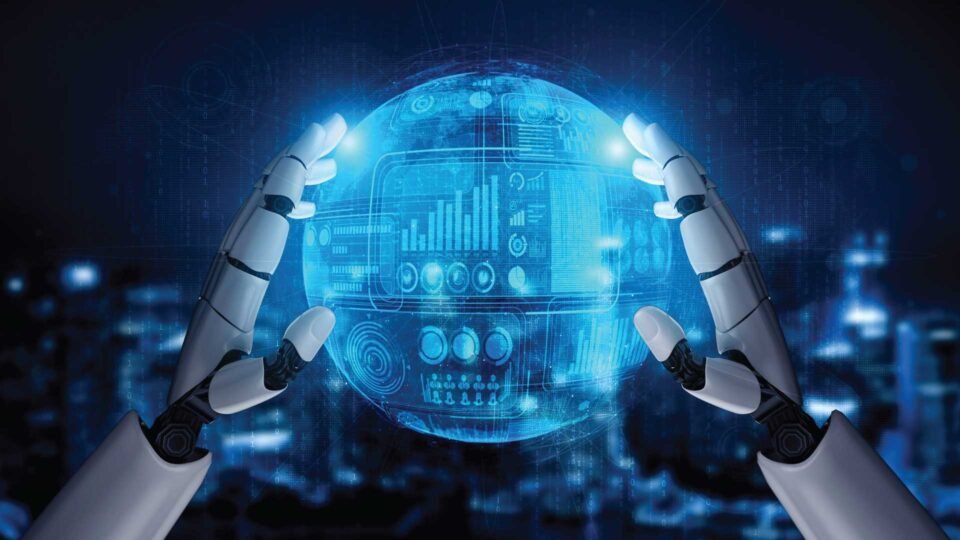AIOps is a growing practice in various industries in which IT professionals use AI, ML, and automation to improve their operations and achieve organizational goals.
Table of contents
-
1. Adoption of AIOps
2. Best Practices of AIOps- 2.1. Suitable Data Management
- 2.2. Right Data Security
- 2.3. Appropriate Use of Available AI APIs
- 2.4. Proper Task Hierarchy Assignment
Introduction
AI and AIOps have been transforming the future of the workplace and IT operations, which accelerates digital transformations. The AIOps stands out as it uses machine learning (ML) and big data tracking, such as root cause analysis, event correlations, and outlier detection. According to the survey, large organizations have been solely relying on AIOps to track their performance. Thus, it is an exciting time for implementing AIOps that can help software engineers, DevOps teams, and other IT professionals to serve quality software and improve the effectiveness of IT operations for their companies.
Here is our takeaway and reflection on shaping the future of the IT industry with the help of AIOps which will automate your workplace and improve efficiency.
1. Adoption of AIOpsMost companies are in the early stages of adopting AIOps to analyze applications and machine learning to automate and improve their IT operations. AIOps have been adopted amongst diverse industries, and more enterprises are adopting it to digitally transform their businesses and simplify complex ecosystems with the help of interconnected apps, services, and devices. AIOps have the potential to tackle complexities that are often unnoticed by IT professionals or other departments in a company. Therefore, AIOps solutions enhance operational efficiency and prevent downtime, which makes work easier.
Numerous opportunities can change the way AIOps has been incorporated into the company. To do so, businesses and IT professionals should be aware of appropriate trends and best practices to embrace AIOps technologies. Let’s take a closer look at these topics:
2. Best Practices of AIOpsTo get the most out of AIOps, DevOps engineers and other IT professionals can implement the following practices:
2.1. Suitable Data ManagementDevOps engineers must be aware that ill-managed data often gives undesired output and affects decision-making. Thus, for a suitable outcome, you should ensure that the gathered data is properly sorted, clean, and classified for seamless data monitoring and browse data through a large database for your enterprise.
2.2. Right Data SecurityThe security of user data is essential for your company, as it is under the guidance of data protection regulation agencies that can impose fines if the data is misused. The DevOps and IT engineers can ensure that the data is properly safeguarded and used within their control to avoid data breaches.
2.3. Appropriate Use of Available AI APIsAIOps’s main aim is to improve the productivity of IT operations with the help of artificial intelligence. Therefore, the IT teams should look for great AI-enabled APIs that improve the tasks they have to accomplish.
2.4. Proper Task Hierarchy AssignmentThis is an important practice for engineers that should be observed when implementing AIOps, as it helps to overview tasks and decide which needs to be prioritized first. By using this practice, DevOps teams can break down their large tasks into smaller ones and develop a hierarchy of priorities in the ML model.
3. Top AIOps Trends for 2023AIOps empowers the changing digital transformation by accelerating the need of
3.1. Explainable AIExplainable artificial intelligence (XAI) is a set of processes and methods that allow IT professionals to trust and comprehend the results and output created by ML algorithms. However, the black box conundrum is one of the main challenges that can prevent various industries from executing AI strategies. One of the industries that is facing such roadblocks is the banking industry.
Case Study
The emerging field of explaining AI (XAI) can help banking sectors navigate the issues of trust and transparency, providing great clarity on AI governance. Many banks are using XAI due to the increase in complex AI algorithms, which has made it critical to deploy advanced AI applications for facial and voice recognition, cybersecurity, and securities trading.
3.2. Auto-RemediationAuto redemption is an approach to automation that responds to events with automation that fixes underlying conditions. It monitors the health of the system, can quickly add hardware to SDDC, and detects and prevents the workload of the cloud system from failing.
Case Study
Salesforce, a cloud-based software company, is a one-stop-shop integrated platform for businesses to connect sales, commerce, services, and many more. After thorough research, the Salesforce IT team uses Grafana’s dashboards to manage and visualize the overall services and alerts, along with the product availability across the company. Frances Zhao-Perez, Senior Director of Product Management at Salesforce, said, “We leverage Grafana Labs’ cloud-native solution to help us manage low-latency alerting and to help with auto-remediation and auto-scaling.”
3.3. Autonomous OperationsAutonomous operations are the future of smart IT and represent the last stage of the shift in autonomy. The main objective of AO is to minimize manual interaction and manage self-selected operations.
Case Study
A good example of autonomous operations (AO) is an autonomous car, where the vehicle is capable of sensing the environment and performing operations without human involvement. Waymo is an autonomous driving tech company that uses AI to power self-driving abilities in its taxis, delivery vans, and tractor-trailers.
IT companies are identifying and understanding the AIOps platforms and trends that can solve their problems of finding and fixing data and preventing performance problems.
To Sum UpAdvanced AIOPs and solutions have the power to transform your enterprise and become self-healing operations. Gartner describes AIOps platforms as software systems that combine big data and artificial intelligence to enhance and partially replace all primary IT operations, including performance and availability monitoring, event application, and automation. Thus, the ITOps team must ensure the daily operation of running the organization smoothly.
Visit AITechPark for cutting-edge Tech Trends around AI, ML, Cybersecurity, along with AITech News, and timely updates from industry professionals!


